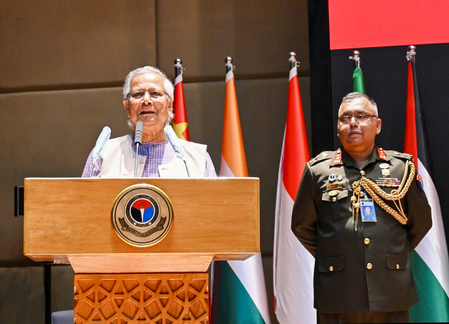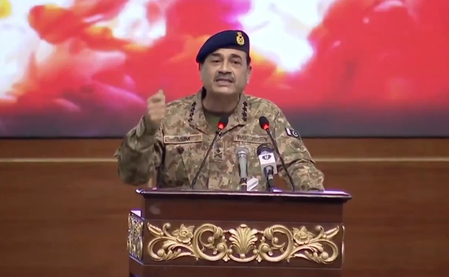
Dhaka, Nov 25 (IANS) Bangladesh’s Awami League party on Tuesday warned that the country is facing a severe, multidimensional crisis marked by rising national debt, stagnant investment and stalled development projects.
Beneath the façade of recent growth, the party said that a hard-hitting reality is emerging, with the nation’s economic progress being undermined by deeply entrenched administrative inefficiency and a culture of widespread corruption under the Muhammad Yunus-led interim government.
“While the debt burden grows, the engines of future growth—investment and job creation—have stalled. Political uncertainty, irregularities in the banking sector, a severe dollar crunch, and bureaucratic hurdles have brought new investment to a virtual standstill. Factories are grappling with difficulties importing raw materials and accessing financing, leading to reduced production. Instead of creating new jobs, the labour market is witnessing a rise in layoffs, contracting economic growth,” the Awami League stated.
According to the party, frustrated entrepreneurs flatly said that corruption is now a bigger barrier than policy uncertainty, while the pervasive ‘duties-bribes-approvals’ cycle has become the default barrier to entry and expansion.
Highlighting the growing economic crisis in Bangladesh, the Awami League emphasised that the impact is most visible in the development sector, where government spending under the interim administration has dropped sharply.
“The implementation of the Annual Development Programme (ADP) has fallen to below 68 per cent — the lowest figure in a decade — following a change of government and subsequent reassessments,” the party stressed.
The Awami League alleged that development projects are paralysed by a lethal combination of administrative delays and half-hearted management, with widespread “commission culture” driving corruption, while incompetent decision-making and complexity in fund release further worsen the situation.
“When development stalls, economists warn, debt ceases to be an investment tool and instead becomes a crushing liability for the future. This is precisely the trajectory Bangladesh is on, where rising debt is failing to translate into financial growth,” the party emphasised.
The Awami claimed that acceleration of external debt in the South Asian nation has been driven by cost overruns, irregularities, and delays in mega-projects, such as the Rooppur Nuclear Power Plant, the Metro Rail, and the Karnaphuli Tunnel. The Asian Development Bank (ADB) also noted that Bangladesh has the fastest-growing external debt in South Asia.
“The debt risk is set to intensify dramatically from the 2026–27 fiscal year onward, when the major repayment installments for these large projects begin, adding immense pressure to the national finances. This alarming trajectory has led the International Monetary Fund (IMF) to already classify Bangladesh’s external debt as moderately risky,” the party mentioned.
–IANS
scor/as



